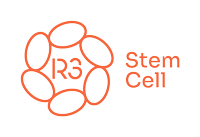Umbilical Cord Stem Cell Therapy in Seattle Northgate and Federal Way
Umbilical cords are usually discarded after a normal delivery. However, scientists have now found that the umbilical cord blood and tissue can be used to treat many disorders, conditions, and injuries. Umbilical cord blood is currently being used to treat such conditions as rheumatoid arthritis, multiple sclerosis, and neuropathy. Cord blood and tissue is rich in multi-potent hematopoietic and mesenchymal stem cells, which makes this a medical breakthrough.
After a normal delivery, around 120-180 milliliters of blood can be taken from an umbilical cord, along with the cord tissue and the surrounding material known as Wharton’s Jelly. The blood is rich in stem cells, which are obtained and processed in an FDA Certified laboratory.
It should be noted that no babies are harmed during the acquisition of the material, as it is donated after a scheduled C-section.
What are the Advantages of using Cord Blood and Tissue Stem Cells?
First of all, the umbilical cord and placenta can easily be collected after a scheduled c-section without any risk to the mother or baby. As the “products of conception” come from material that’s only job has been to help the baby grow and flourish, regenerative cells are plentiful and number in the tens of millions.
With umbilical cord tissue processing, one doesn’t have to worry about graft-versus-host disease. During the processing, any DNA factors are removed so there is nothing to reject against. In addition, during the processing the lab tests for all types of diseases.
As there is no shortage of scheduled c-sections occurring in the US, another advantage is that there is plenty of material available. The biologic is extremely consistent from donor to donor, much more so than using one’s bone marrow or adipose tissue!
Ethics involved with Stem Cell Therapy
When one hears the term “stem cell therapy,” they often think of embryonic stem cells. With umbilical cord blood, the umbilical cords are donated AFTER delivery of the infant, so there are no ethical problems. Cord blood stem cells are not embryonic, they are mesenchymal. They are still multipotent, which means they can differentiate into any cell type needed for regeneration.
With embryonic stem cells, embryos are donated after still births or abortions. This is not the case with umbilical cord blood. Cord blood stem cells are classified as adult stem cells, and they have much potency, making them ideal for many types of therapies. Cord blood has advantaged over embryonic sources without the ethical drawbacks as well.
Is the Treatment Safe?
To date, R3 Stem Cell’s Centers have performed over 10,000 procedures successfully. No serious adverse events have occurred!
What Conditions are Treated?
The umbilical cord stem cell therapy is being offered for all types of arthritis, tendonitis, COPD, post-stroke, back pain, neurodegenerative conditions, neuropathy, Alzheimer’s, Migraines, autoimmune syndromes and organ failure.
What Outcomes are Seen?
In all, treatment outcomes have been excellent in over 80% of cases. These results often last for a long time, but that depends on the condition and severity.
All of R3 Stem Cell’s Centers of Excellence offer a free consultation, call (844) GET-STEM today!




